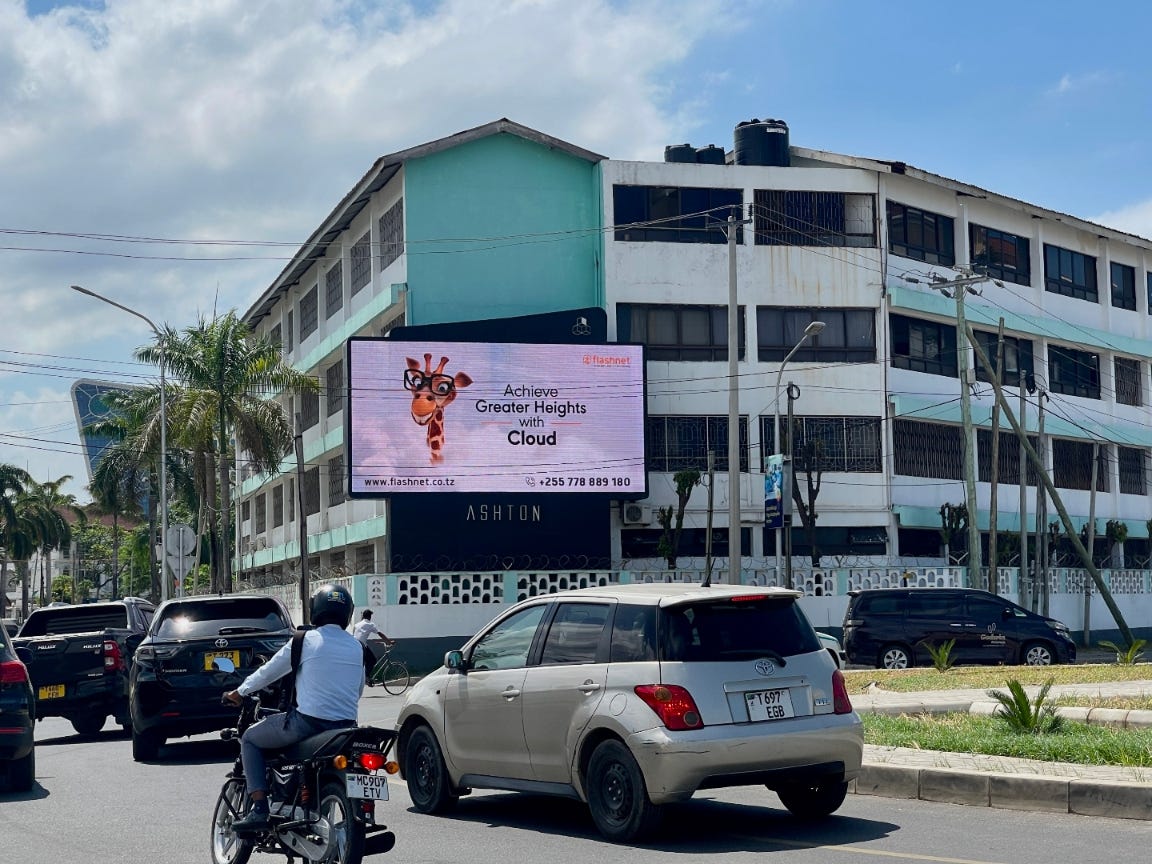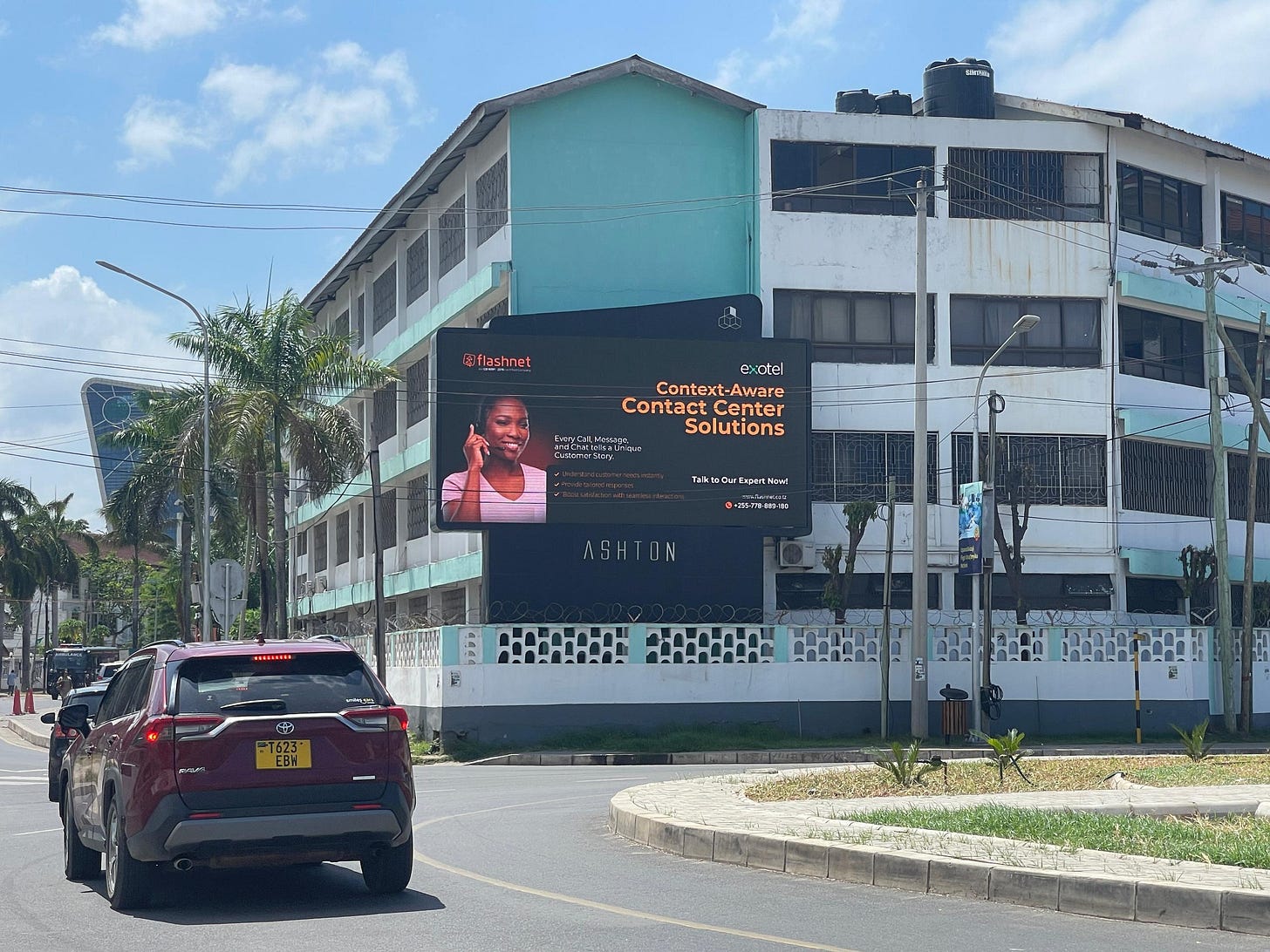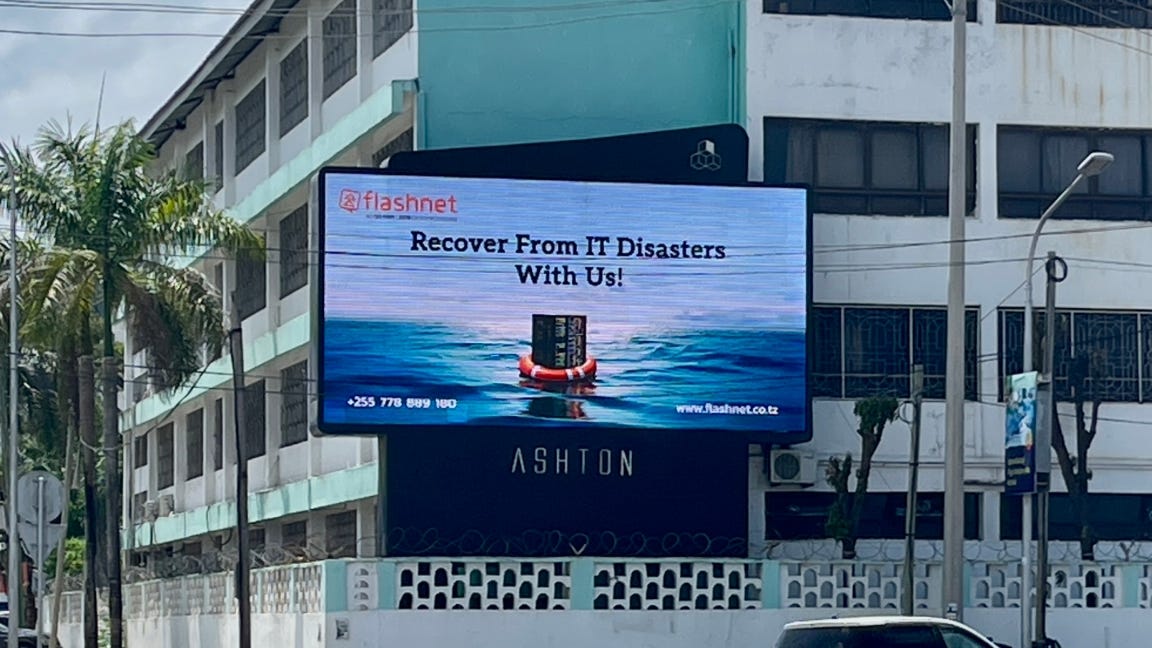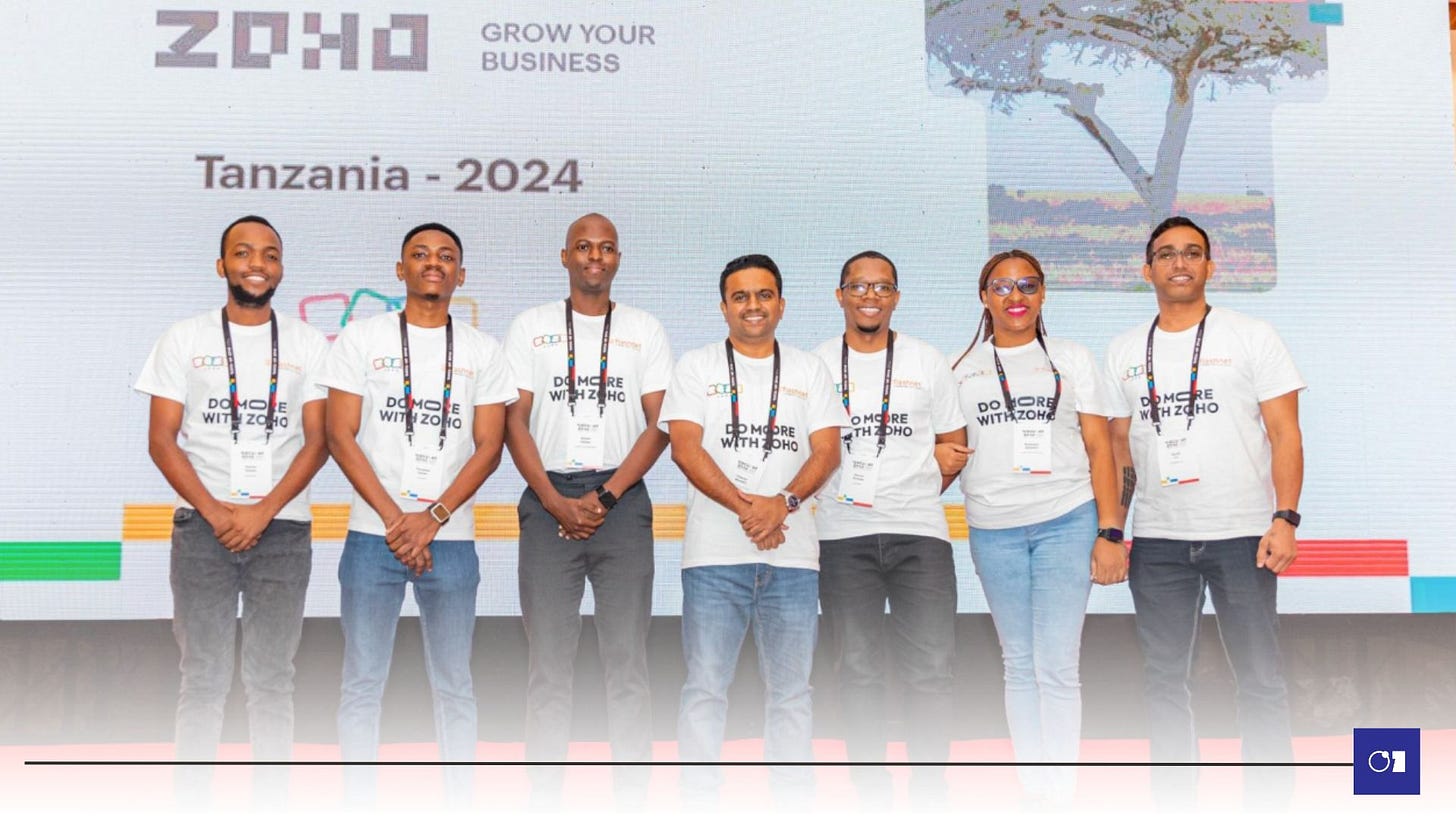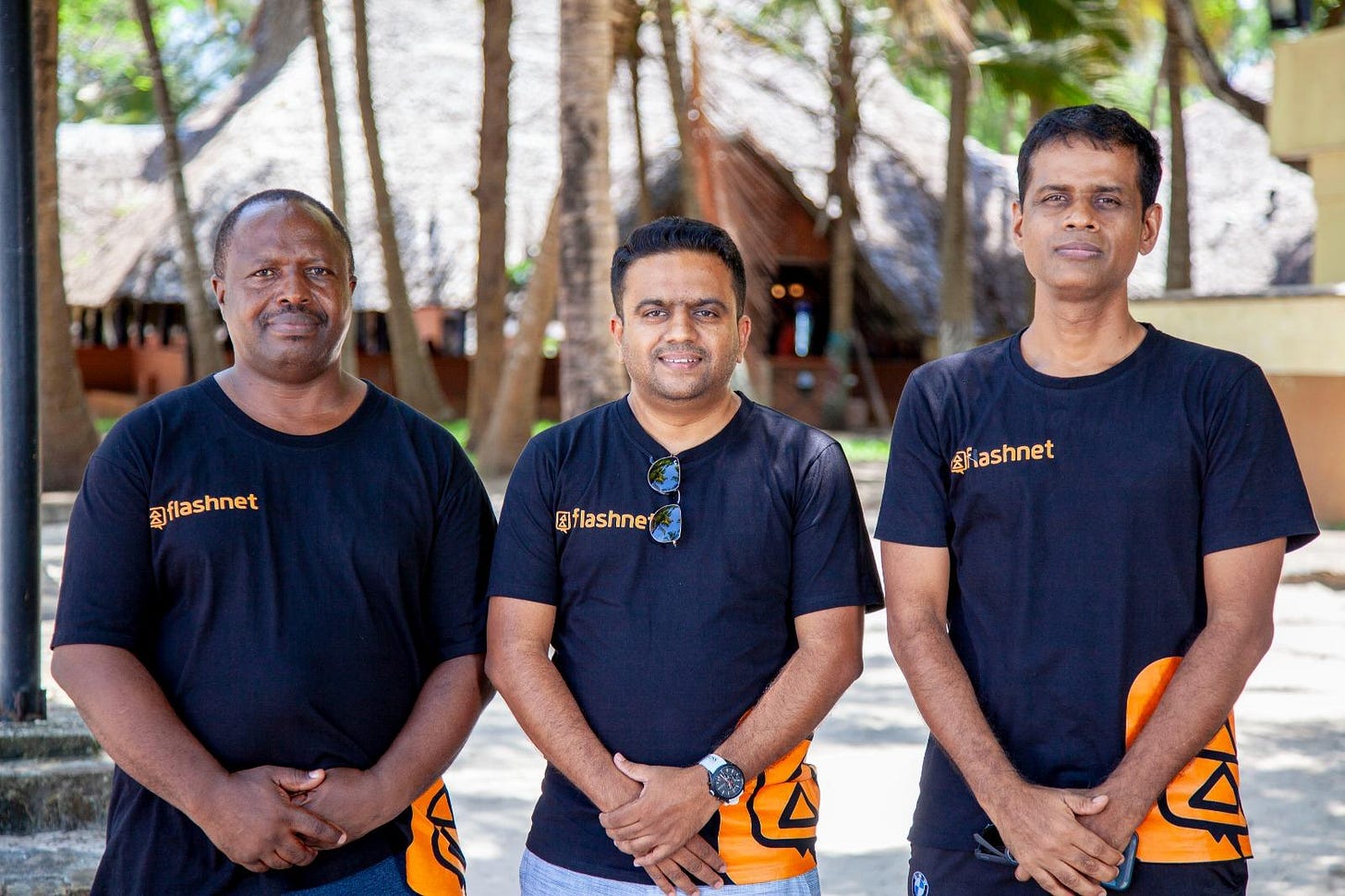Tanzania Needs More Than Basic Internet to Compete Globally
Exclusive interview with Flashnet's CEO
The morning sun streams through the windows of Flashnet’s headquarters on the fifth floor of Garden Avenue Tower in Dar es Salaam.
Vinayan Benedict arrives early, as he does every day. He walks past workstations where engineers monitor network operations and customer support teams field calls. From his office window, he can see the city coming to life, with the harbor visible in the distance.
“Technology in Tanzania is still in a growing stage,” Benedict says, his voice calm but emphatic.
This observation comes from someone who has spent over 19 years in the telecom and IT industry, witnessing firsthand both the potential and challenges of digital transformation in East Africa.
From Kerala to Posta
Benedict started his career as a technical support executive at an India-based data center solutions provider in 2005 after earning his bachelor’s degree in computer applications from the University of Kerala.
He moved to Tanzania in 2008, working as a network administrator at a telecommunications company.
“When I first came to Tanzania, I noticed most businesses were not spending on information technology,” he recalls. “Not because of frugality, but due to a misunderstanding of the value IT brings.”
This insight would later shape his approach at Flashnet, which operates as an IT service provider.
The company initially focused on basic technology solutions before expanding into internet and connectivity services by 2017.
“Our clients pushed us to do more every time,” Benedict explains. “We listened to what Tanzanian businesses actually needed rather than just selling what was available.”
The evolution into a comprehensive Managed Service Provider (MSP) came in 2020 when Benedict and his team revamped Flashnet.
Today, the company offers a wholesome suite of tech solutions, including internet connectivity, managed IT services, cybersecurity, cloud computing, and data center services across mainland Tanzania and Zanzibar.
Understanding Tanzania’s IT Scene
Benedict walks over to a whiteboard covered with network diagrams and customer deployment plans. He points to a map showing connectivity coverage across Tanzania.
“We have 49.3 million internet users in Tanzania, about 72% of our population,” he notes. “But having access and having reliable, business-grade connectivity are two different things.”
The challenges are numerous. Limited adoption of advanced business infrastructure such as fiber, cloud services, and high-speed internet outside major urban centers hinders digital transformation.
Additionally, businesses struggle to acquire and retain skilled technical talent for crucial roles like cybersecurity specialists.
“Many companies try to build and maintain internal IT teams, but this requires significant investment in hardware, software, training, and salaries,” Benedict explains. “These costs can quickly eat into operational budgets and divert resources from core business activities.”
This understanding of local constraints led Flashnet to develop its business model around outsourced infotech services.
By functioning as an external IT department for businesses, they allow companies to focus on their primary operations while leaving technology management to specialists.
Beyond Connectivity
The company’s offerings have evolved significantly since its inception.
Today, Flashnet provides five distinct business internet solutions: broadband internet, dedicated internet access, SD-WAN (Software-Defined Wide Area Network), VPN (Virtual Private Network), and MPLS (Multi-Protocol Label Switching).
“Different businesses have different needs," Benedict says. “A bank in Arusha requires different connectivity solutions than a mining company operating in remote areas.”
Flashnet also became the first MSP in Tanzania to achieve ISO 9001:2015 certification, a globally recognized standard for quality management systems.
This certification validates their commitment to consistently delivering high-quality services to clients.
“Think of it like hiring a plumber when you have a pipe leak at home,” Vinayan Benedict explains, using a simple analogy. “You could spend hours watching tutorials and buying tools to fix it yourself, or you could call an expert and have it sorted quickly. We are that expert in the business ICT space.”
Tanzania’s Own Cloud Infrastructure
Flashnet has invested in local cloud systems built specifically for Tanzania’s expanding private sector.
The company offers businesses complete cloud computing without expensive hardware purchases, with data centers in Tanzania providing faster access and better data control.
“Having our data centers right here gives businesses more confidence in their digital transformation,” Benedict explains. “Local solutions are always more responsive to local needs.”
Smarter Customer Service with AI
In 2022, Flashnet partnered with Exotel to bring AI-powered customer service to Tanzania.
Their platform analyzes interactions across voice calls, chat, and WhatsApp, helping agents understand customer needs better.
“We believe AI should enhance human capabilities, not replace them,” the Flashnet CEO notes.
The technology has already attracted major financial institutions, insurance providers, telecom operators, and innovative fintech companies across Tanzania.
Addressing Security Concerns
Security remains a top priority for Benedict and his team. In 2023 alone, Tanzanian banks reportedly lost over Sh10.3 billion due to fraud.
“98% of Tanzanian organizations spend less than USD 5,000 annually—or nothing at all—on cybersecurity measures,” one report points out. This underinvestment leaves businesses dangerously exposed.
To address this vulnerability, Flashnet has partnered with leading global cybersecurity providers, including Sophos, Acronis, Bitdefender, and Fortinet.
These partnerships allow them to offer comprehensive security solutions tailored to the Tanzanian market.
“We provide a business security net,” Benedict says. “Our goal is to protect companies from data breaches and cyber threats that can hinder operations and cost companies dearly in time and reputation.”
Partnering with Global Services
As businesses increasingly move to cloud-based solutions, Flashnet has positioned itself as a bridge between global services and local implementation.
One major partnership is with Zoho, a leading software company offering a comprehensive suite of business applications.
Zoho can save enterprises over Sh18 million yearly compared to using Google or Microsoft products.
As an authorized Zoho partner, Flashnet handles all technical setup and training that would otherwise require specialized in-house teams.
The process includes implementing various Zoho products such as the comprehensive Zoho One business suite, customer management tools, support desk software, accounting systems, and team collaboration platforms.
Looking Ahead
As our conversation winds down, Benedict shares his vision for the future of IT services in Tanzania.
“We are seeing notable growth in cloud adoption among Tanzanian businesses. The shift away from traditional on-premise solutions to more flexible, scalable cloud services will continue.”
He also anticipates increased focus on cybersecurity as businesses become more aware of digital threats. “As more business operations move online, protecting data and systems becomes even more critical.”
For Flashnet itself, the roadmap includes expanding its service offerings to include more artificial intelligence and machine learning solutions, which they began introducing in 2022.
“Our vision is to be the best innovative technology solutions provider in East Africa,” Benedict says, looking out at the Dar skyline. “But innovation alone is not enough. It must be innovation that solves real problems for Tanzanian enterprises.”
With Tanzania continuing its digital transformation journey, companies like Flashnet play a crucial role in closing the gap between global technology trends and local implementation.
Affordable and reliable IT solutions tailored to the Tanzanian context enable businesses to compete in an increasingly digital world.







